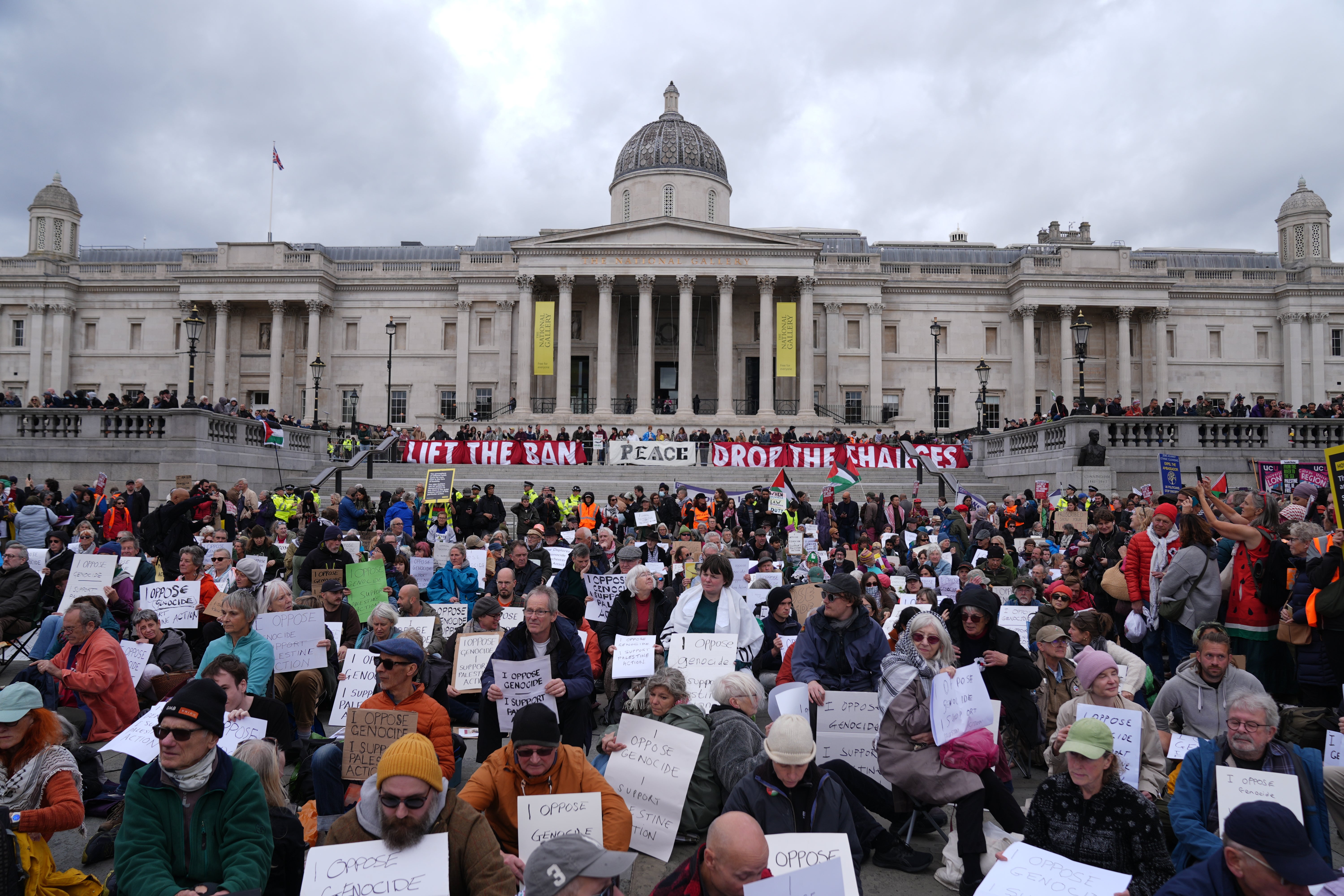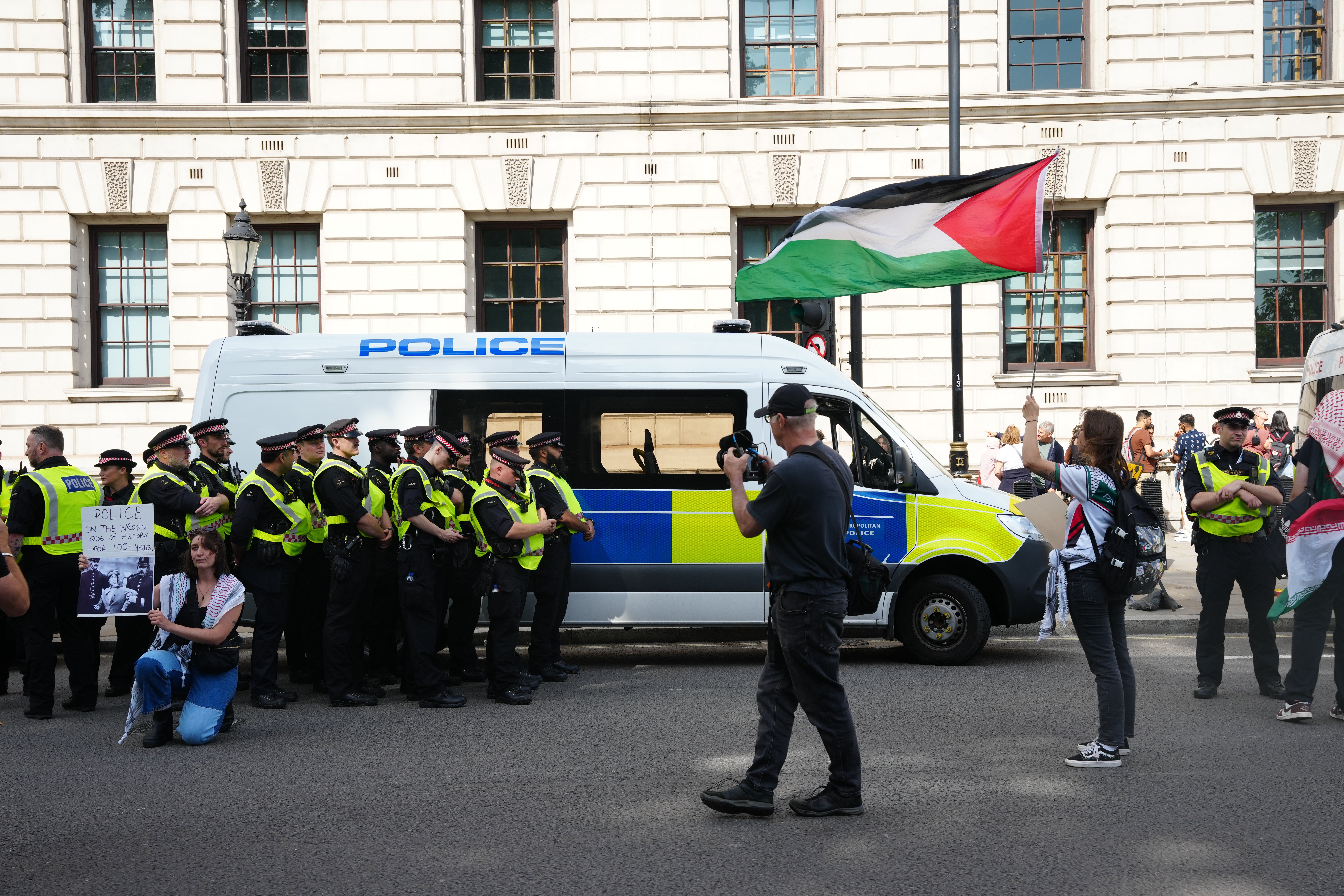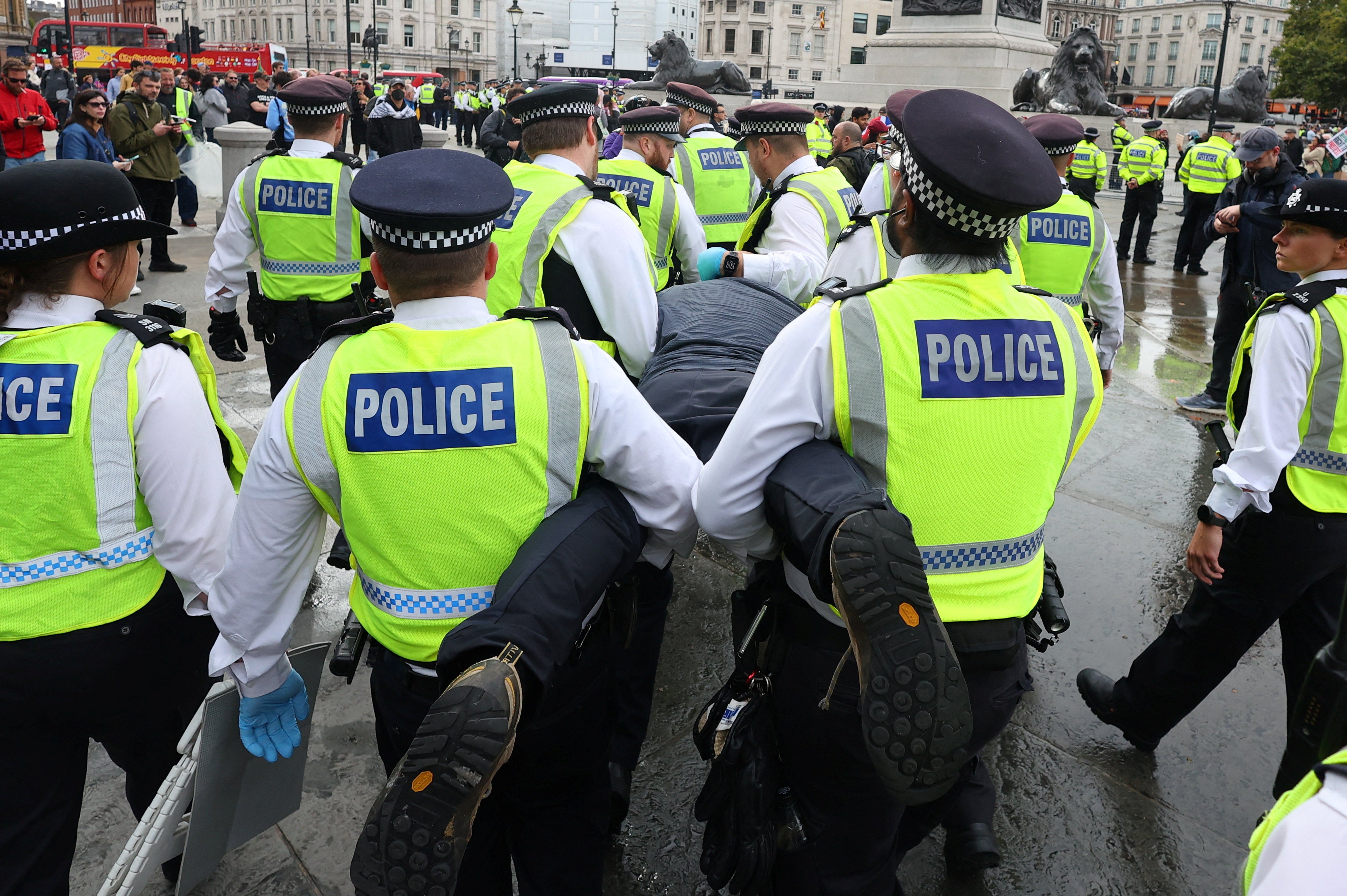Palestine Action can proceed with a legal challenge against the government over the group’s ban as a terror organisation, the Court of Appeal has ruled.
Founder Huda Ammori took legal action against former home secretary Yvette Cooper’s decision to proscribe the group under anti-terror laws.
The ban, which began on 5 July, made supporting the direct action group a criminal offence punishable by up to 14 years in prison.
Around 2,000 protesters have so far been arrested and face possible charges under the Terrorism Act for defying the controversial ban in a series of major demonstrations.
Ms Ammori was initially granted permission to launch a judicial review by Mr Justice Chamberlain, after finding that two parts of her case were “reasonably arguable”.
However, in September, the Home Office brought a challenge against this decision to the Court of Appeal in London.
Barristers for the Home Office argued Ms Ammori should bring her legal challenge to the home secretary and then the Proscribed Organisations Appeal Commission (POAC), rather than the High Court for a “judicial review”.

Lawyers for Ms Ammori insisted the POAC was not the only suitable place to challenge the lawfulness of a ban.
On Friday, the Home Office’s bid to halt the judicial review was dismissed in a ruling by Lady Chief Justice Baroness Carr, which Ms Ammori hailed as a “landmark victory” for her case.
Baroness Carr concluded: “Judicial review would be a quicker means of challenging the order proscribing Palestine Action than applying to deproscribe.
“Judicial review would enable the High Court to give an authoritative judgment on whether or not it was lawful to proscribe Palestine Action.
“That judgment could then be relied on in criminal courts hearing charges against any person arrested in connection with their support of Palestine Action.”
Following the judges’ ruling, Ms Ammori said: “The Court of Appeal has rightly rejected Yvette Cooper’s attempt to block a legal review of her absurdly authoritarian ban, while granting us additional grounds on which to challenge it.

“This is a landmark victory: not only against one of the most extreme attacks on civil liberties in recent British history, but for the fundamental principle that government ministers can and must be held accountable when they act unlawfully.”
In a 37-page judgment, Baroness Carr, sitting with Lord Justice Edis and Lord Justice Lewis, said the process of applying for deproscription and appealing against a refusal at POAC “is intended to deal with another situation”.
Baroness Carr said the process “is not intended to be a means of challenging the initial decision to proscribe and does not provide for the removal of the consequences of an initial decision to proscribe an organisation”.
She added: “We consider that the fact that judicial review would be a more expeditious means of challenging the order, given the public importance of the issues raised, and, in particular, the fact that persons were facing convictions for acting in ways made criminal as a consequence of the order, justified using judicial review rather than the process of applying for an order to remove Palestine Action from the list of proscribed organisations.”

Almost 500 peaceful protesters were hauled away by police for holding placards declaring “I oppose genocide, I support Palestine Action” at the most recent demonstration against the ban in Trafalgar Square earlier this month, bringing the total arrested to roughly 2,000.
On Thursday, Metropolitan Police commissioner Sir Mark Rowley said building cases against so many protesters is placing a “big burden” on counterterrorism officers. At least 138 have so far been charged under the Terrorism Act.
Protest organisers Defend Our Juries have promised a “major escalation” in their campaign ahead of the judicial review on 25 November, after Shabana Mahmood announced a further crackdown on “large, repeated protests”.







